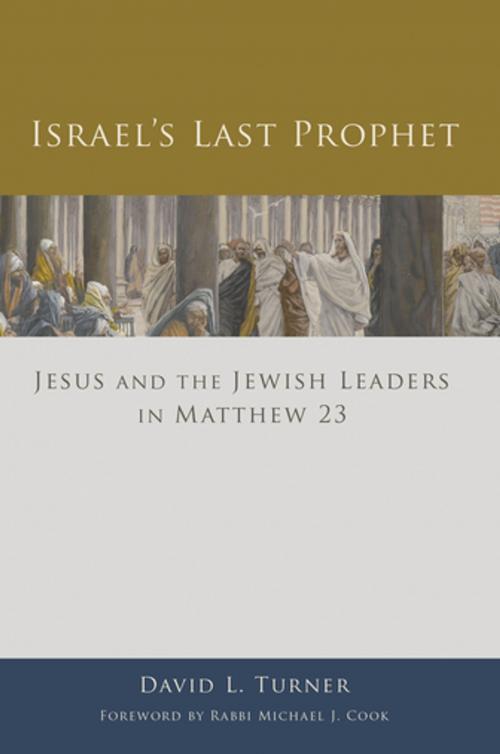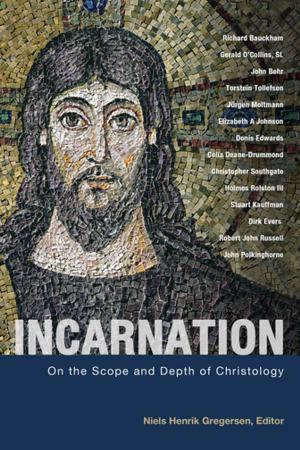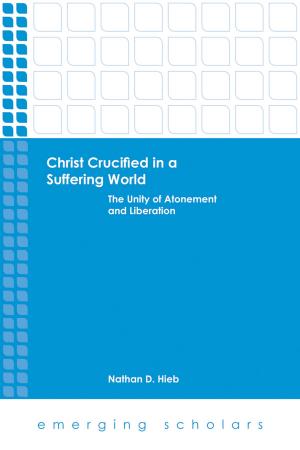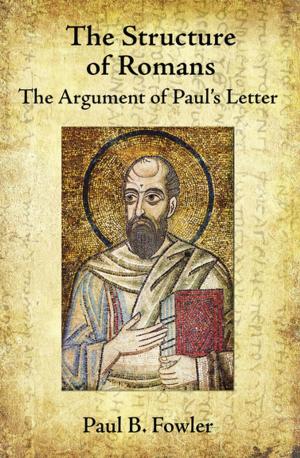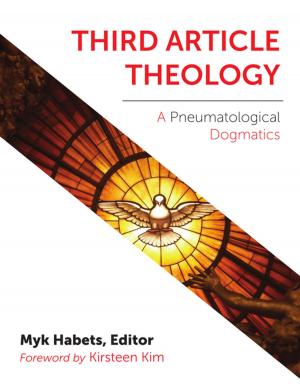Israel's Last Prophet
Jesus and the Jewish Leaders in Matthew 23
Nonfiction, Religion & Spirituality, Bible & Bible Studies, New Testament, Criticism & Interpretation| Author: | David L. Turner | ISBN: | 9781451472318 |
| Publisher: | Fortress Press | Publication: | August 1, 2015 |
| Imprint: | Fortress Press | Language: | English |
| Author: | David L. Turner |
| ISBN: | 9781451472318 |
| Publisher: | Fortress Press |
| Publication: | August 1, 2015 |
| Imprint: | Fortress Press |
| Language: | English |
Jesus’ words of indictment and judgment in the Gospel according to Matthew have fueled centuries of Christian anti-Judaism and the horrors of the twentieth-century Holocaust. The solemn parables and pronouncements of judgment in chapters 22‒23 come to a climax in Jesus’ ironic command that the scribes and Pharisees “fill up the measure” of their ancestors, bringing upon their generation the judgment of God (Matt. 23:32–36). But what did those words originally mean within Matthew’s narrative? Carefully distinguishing what can be known from what may only be conjectured, David L. Turner examines how Matthew has taken up Deuteronomic themes of prophetic rejection and judgment and woven them throughout the Gospel, particularly in Matthew 23. Turner argues that the Gospel author was engaged in a heated intramural dispute with other Jewish groups and that the terrible legacy of Christian anti-Jewish violence results, in part, from a gross misunderstanding of Matthew’s original context and purpose—on the part of generations who failed to recognize the author’s worldview and allusions.
Jesus’ words of indictment and judgment in the Gospel according to Matthew have fueled centuries of Christian anti-Judaism and the horrors of the twentieth-century Holocaust. The solemn parables and pronouncements of judgment in chapters 22‒23 come to a climax in Jesus’ ironic command that the scribes and Pharisees “fill up the measure” of their ancestors, bringing upon their generation the judgment of God (Matt. 23:32–36). But what did those words originally mean within Matthew’s narrative? Carefully distinguishing what can be known from what may only be conjectured, David L. Turner examines how Matthew has taken up Deuteronomic themes of prophetic rejection and judgment and woven them throughout the Gospel, particularly in Matthew 23. Turner argues that the Gospel author was engaged in a heated intramural dispute with other Jewish groups and that the terrible legacy of Christian anti-Jewish violence results, in part, from a gross misunderstanding of Matthew’s original context and purpose—on the part of generations who failed to recognize the author’s worldview and allusions.
